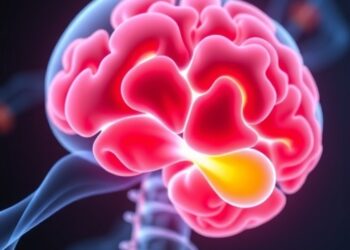Scientists at The University of Texas Health Science Center at San Antonio (UT Health San Antonio) School of Dentistry created a first of its kind sleep apnea model for studying chronic pain. A study published July 30 in Science Signaling, explains the mechanism behind persistent pain related to obstructive sleep apnea.
Scientists at The University of Texas Health Science Center at San Antonio (UT Health San Antonio) School of Dentistry created a first of its kind sleep apnea model for studying chronic pain. A study published July 30 in Science Signaling, explains the mechanism behind persistent pain related to obstructive sleep apnea.
More than 100 million people worldwide are affected by obstructive sleep apnea. This health condition causes a person to stop breathing numerous times while they are sleeping. Reduced sleep time and sleep quality can lead to numerous health problems including chronic pain, which is diagnosed at a much higher rate in people with obstructive sleep apnea than those with normal sleep patterns.
Nathaniel Jeske, PhD, is the primary investigator of this study and director of research for the Department of Oral and Maxillofacial Surgery in the School of Dentistry at UT Health San Antonio.
“We are looking at maladaptive neuroplasticity in these primary nociceptors that are representing persistent pain, which serves as a bridge between the acute and the chronic,” Jeske said.
The peripheral nervous system controls messages from nerves that run throughout arms, legs and skin and sends these messages to the central nervous system. Nociceptors in this system are nerve cells specialized in detecting stimuli that produce pain.
“This study represents a significant advancement in our understanding of the relationship between sleep apnea and chronic pain,” said Peter M. Loomer, DDS, PhD, MBA, FACD, dean of the UT Health San Antonio School of Dentistry. “Insight into the role of oxygen deprivation in pain sensitization will pave the way for innovative treatment approaches that could enhance patient outcomes.”
To mimic the effects of obstructive sleep apnea in a mouse model, the researchers created a chronic intermittent hypoxia environment. After 14 days, the team observed an increase in cytokines, which are molecules released by the immune system that tell other cells to produce an inflammatory state. In a state of chronic reduced oxygen, these released cytokines cause sensitivity in nociceptors that produce prolonged sensitivity to pain.
Given the extensive prevalence of obstructive sleep apnea, this study has far-ranging implications for both its treatment and treatment of associated persistent pain. Jeske said most people that have obstructive sleep apnea remain untreated. Many people who are diagnosed and prescribed a continuous positive airway pressure (CPAP) machine do not adhere to its consistent use.
“The puzzle of pain remains unsolved and has led to many untoward events including accelerating the epidemic of opioid use disorder,” said Ken Hargreaves, DDS, PhD, director of the Center for Pain Therapeutics and Addiction Research and professor in the Department of Endodontics at the university’s School of Dentistry. “The findings of Dr. Jeske and his research team offer a novel and potentially insightful approach for resolving this puzzle for patients with obstructive sleep apnea.”
Results in this study suggest treatment that corrects the chronic lack of oxygen or targets the peripheral macrophages could correct persistent pain for some obstructive sleep apnea patients. By identifying the mechanisms behind pain related to the condition, future research can explore these and other targeted treatments.
To read more about the study, visit:
The University of Texas Health Science Center at San Antonio (UT Health San Antonio) is one of the country’s leading health science universities and is designated as a Hispanic-Serving Institution by the U.S. Department of Education. With missions of teaching, research, patient care and community engagement, its schools of medicine, nursing, dentistry, health professions, graduate biomedical sciences and public health have graduated more than 43,886 alumni who are leading change, advancing their fields and renewing hope for patients and their families throughout South Texas and the world. To learn about the many ways “We make lives better®,” visit UTHealthSA.org.
The UT Health San Antonio School of Dentistry offers 18 degrees and programs in both dentistry and dental hygiene, world-renown faculty educators, a diverse student population, state-of-the-art clinical facilities and a distinguished research enterprise. Departments include comprehensive dentistry, developmental dentistry, endodontics, periodontics, and oral and maxillofacial surgery. Scientists collaborate with clinicians and research teams worldwide, and work across multiple medical and dental disciplines to find new treatments, advancing knowledge of oral health, biomaterials, cancer, pain and more. To learn more, visit https://www.uthscsa.edu/academics/dental.
Stay connected with The University of Texas Health Science Center at San Antonio on Facebook, Twitter, LinkedIn, Instagram and YouTube.
Journal
Science Signaling
Article Title
Peripheral macrophages contribute to nociceptor priming in mice with chronic intermittent hypoxia
Article Publication Date
30-Jul-2024




